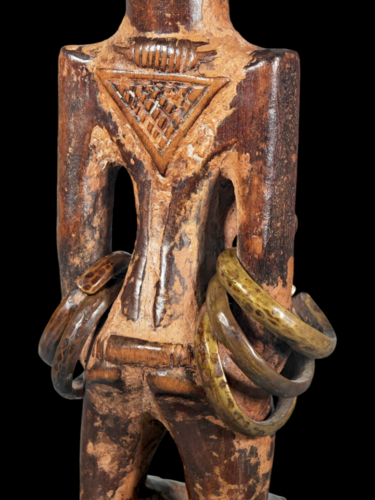Tirah
The Islamic Amulets
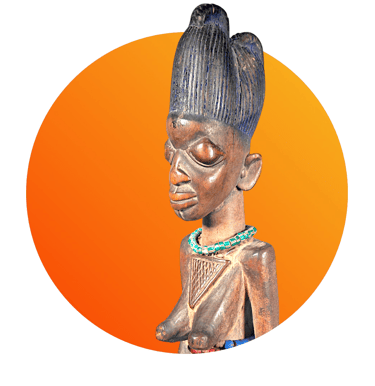

The Yoruba master sculptors, particularly those established in Kwara State (Ilorin), as well as in Osun State (Igbomina), have long incorporated the use of amulets into various artifacts dedicated to religious practices.
The Ère Ìbejì figures, emblematic representations of twins in Yoruba spirituality, are by no means exempt from this tradition. They are frequently adorned with these characteristic ornaments—triangular-shaped jewels commonly referred to as Muslim triangles. This stylized iconography constitutes one of the most widespread representations of the Tirah, thus bearing witness to the cultural and religious influences that have shaped Yoruba art over the centuries.
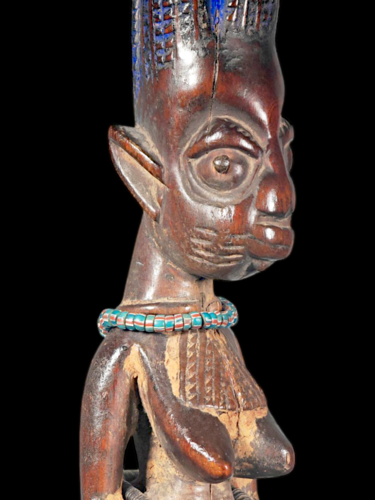

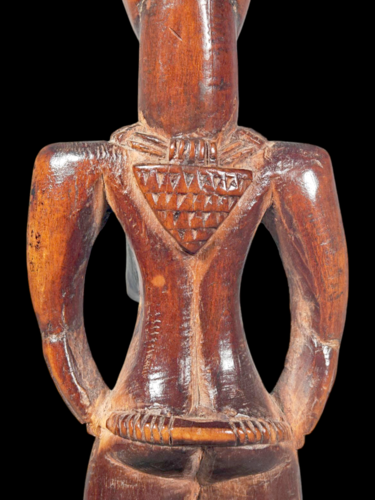

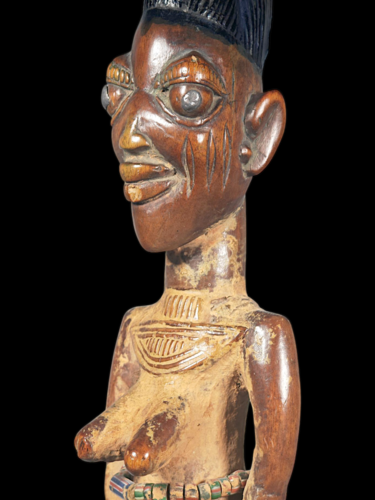

Origin of Tirah
Tirah are Islamic amulets widely used in Nigeria and other parts of West Africa, particularly among the Hausa and Fulani people. Their origins lie in Islamic traditions and esoteric practices, blending local African influences with Muslim spirituality.
The use of amulets in West African culture dates back to pre-Islamic times, but their adoption within an Islamic framework occurred with the spread of Islam in the region, particularly from the 11th century onwards. Sufi scholars and marabouts played a key role in promoting Tirah, associating them with Quranic teachings and mystical practices.
Meaning and Usage
Tirah are talismans often made of handwritten verses from the Quran, prayers, or esoteric symbols inscribed on paper, leather, or parchment. These writings are then placed in a pouch made of leather, metal, or fabric and worn on the body as a necklace, bracelet, or attached to clothing.
They are believed to provide various spiritual and physical benefits, including:
Protection against evil spirits and the evil eye
Luck and prosperity
Healing from illnesses
Spiritual strength and mystical power
In some cases, marabouts prepare Tirah tailored to the wearer's needs, inscribing them with magic squares (wafq), invocations, and divine names.
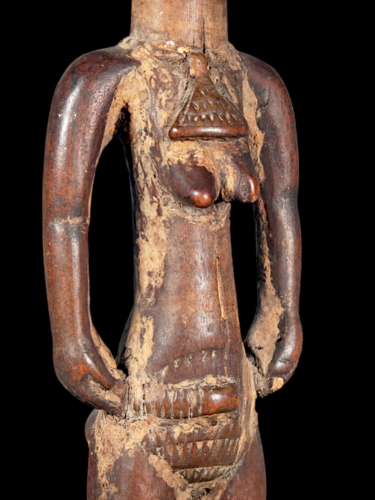

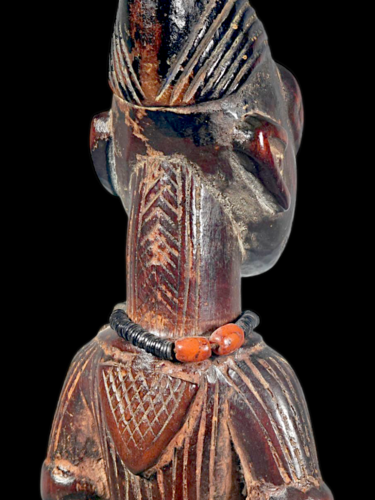

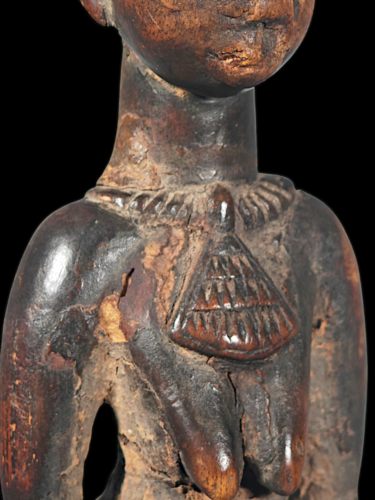

Controversies and Religious Perception
While many West African Muslims use these amulets, some Islamic movements (notably Wahhabism and Salafism) criticize their use, considering them superstitious or a form of shirk (associating partners with God). However, within Sufism and popular Islam, they are viewed as a legitimate means of invoking divine protection.
In summary, Tirah represent a fusion of Islamic tradition and African spiritual beliefs, playing a crucial role in the religious and mystical culture of Nigeria and West Africa.
